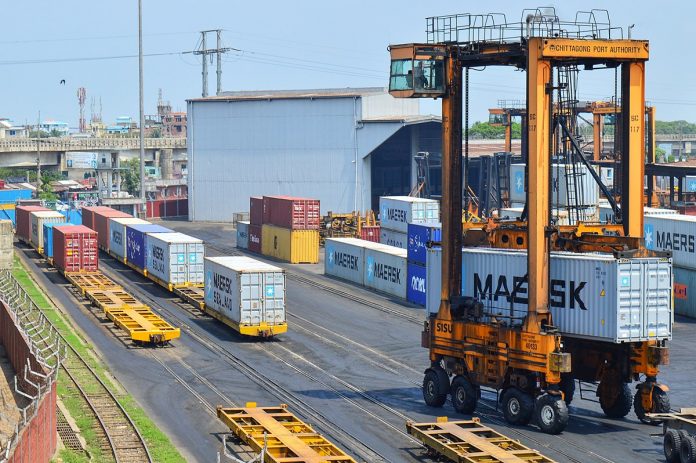The vehicle strike started on 5 November in Bangladesh is continuing for the fourth consecutive day, disrupting transportation of all kinds of goods across the country.
Over 10,100TEU export containers remained stuck at the 19 off docks of which at least 50% were supposed to go to the port of Chittagong for shipment. The boxes could not go to the port yards as truck and covered vans did not show up to carry them there.
According to port officials, three vessels namely X-Press Lhotse, AS Sicilia, and Kalamoti Trader left port jetties leaving behind some 1,350 boxes for them as they could not reach hook point finally.
Also, the port yards become jam-packed with import containers, as importers could not take delivery of boxes and the same could not be sent to the off docks due to the non-availability of vehicles.
The number of containers at the port yard reached nearly 40,000TEU out of its total storage capacity of 49,000TEU.
The vehicle owners are enforcing strike protesting enhancement of diesel price hike which came into effect on Thursday mid-night. They said they will not withdraw the strike until fuel price is reduced to the past rate.
While on average every day, the Chittagong port loads 5,500TEU to the vessels from its yards, it shipped only 2,154TEU on Sunday and only 2,064 TEU on Saturday.
Ruhul Amin Sikder (Biplob), secretary, Bangladesh Inland Container Depots Association (BICDA), said truckers carried some boxes even on Friday, but since Saturday it remained totally stopped. “Drivers are yet to start work, thus no outbound boxes are going to the port,” he pointed out.
The off docks handle nearly 100% export containers where cargoes come by trucks and covered vans, stuffed in the containers and then sent to the port yards from shipment.
“We have decided to continue the strike until the diesel price is reshuffle downward,” said Tajul Islam, member secretary of the Bangladesh Truck, Covered Van, Tank Lorry, Prime Mover Coordination Council.
He added alongside diesel price, last week the toll of two bridges was raised which has mounted their operation costs compared to the income.
“We can’t make living by running vehicles through buying diesel at exorbitant price,” said Islam.
“Any types of strikes are bad for the trade,” noted Mohammed Abdullah Jahir, chief operating officer at Saif Maritime Ltd. He said the government needs to resolve the crisis through discussion immediately before the loss mounts further to help recover trade which faced severe damage during the long pandemic days.
Sharar Nayel
Bangladesh Correspondent







